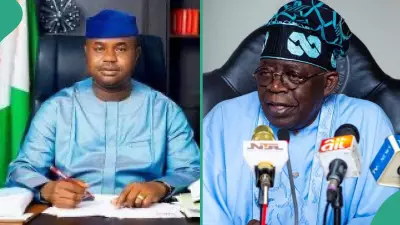
A dramatic legal showdown is unfolding in Nigeria's financial sector as the Federal High Court in Lagos has taken decisive action against an Indian businessman and his companies over alleged debts totaling a staggering ₦9.5 billion.
Court Orders Financial Freeze
Justice Chukwujekwu Aneke issued a comprehensive restraining order preventing several commercial banks from conducting any transactions involving the accounts and assets of Nagarajan Srikanth and his affiliated companies. The order specifically targets AAVI Trade Nigeria Limited, Brisk Tradelink Limited, and their promoter, the Indian businessman at the center of the controversy.
The Debt Dispute
The legal action stems from a petition filed by AVI Consortium Nigeria Limited, which claims the respondent companies and their promoter owe them the massive sum of ₦9,576,587,500. Court documents reveal that the debt allegedly accumulated from various business transactions that went sour between the parties.
"The respondents have failed, refused, and/or neglected to liquidate the outstanding debt," court filings state, highlighting the breakdown in settlement negotiations between the business entities.
Immediate Financial Implications
The interim order carries significant weight in the banking sector, compelling financial institutions to:
- Immediately freeze all accounts linked to the respondents
- Prevent any withdrawals or transfers from these accounts
- Maintain the current financial status quo pending further court directives
- Provide detailed account statements to the court
Legal Proceedings and Next Steps
The case, identified as suit number FHC/L/CS/2353/2024, has been adjourned to November 6, 2024, for further hearing. During this period, the court order remains in full effect, creating substantial operational challenges for the affected businesses.
Legal experts suggest this case highlights the Nigerian judiciary's increasing willingness to take swift action in high-value commercial disputes, particularly those involving international business figures operating within the country.
The outcome of this case could set important precedents for how Nigerian courts handle cross-border business disputes and substantial debt recovery cases involving foreign entrepreneurs operating in Africa's largest economy.





